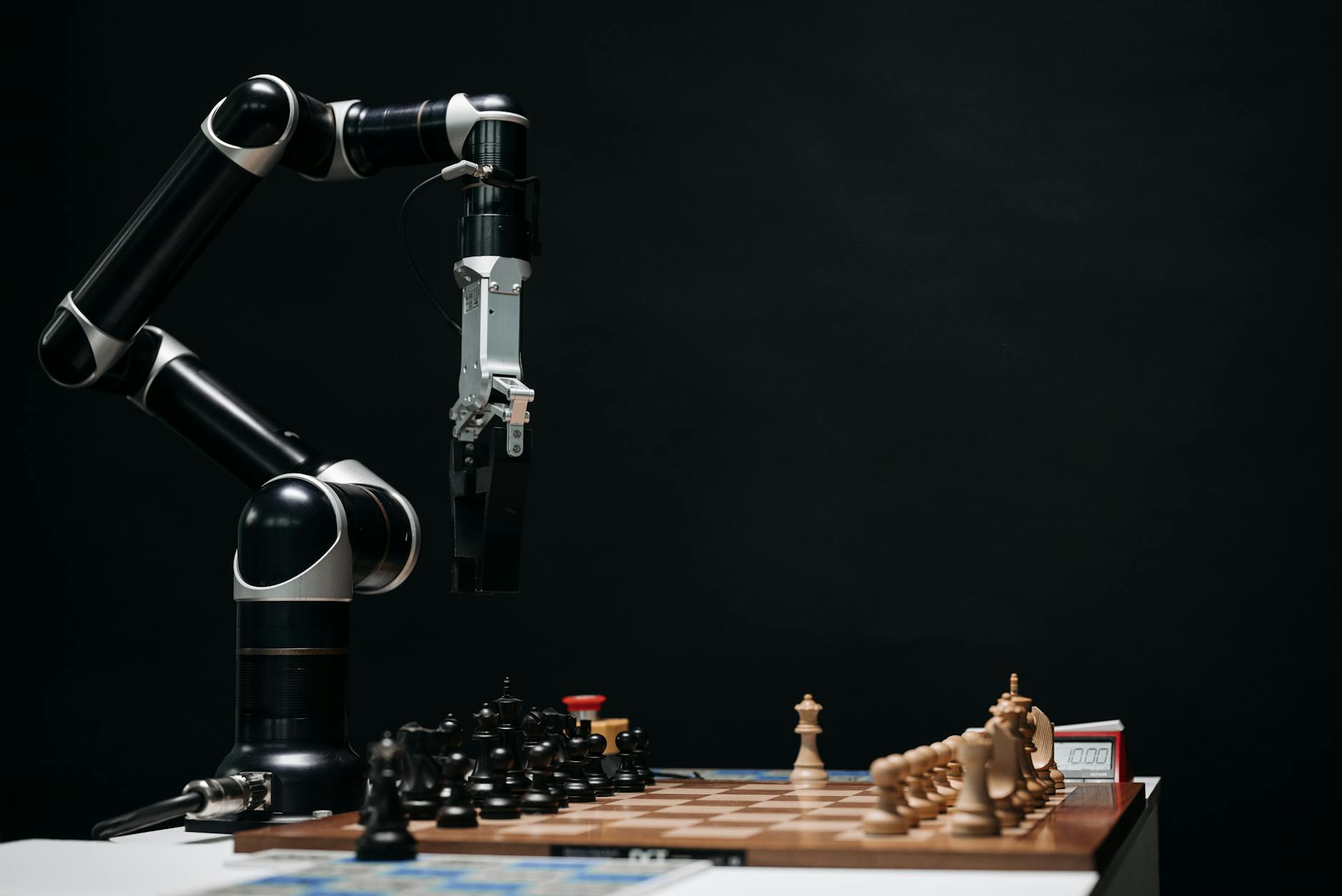Discover the thought-provoking possibilities of a Skynet-like future as we delve into the potential reality of AI domination.
Table of Contents
Artificial Intelligence, or AI, has undeniably become a hot topic in recent years. From virtual assistants like Siri and Alexa to self-driving cars and advanced recommendation systems, AI has permeated various aspects of our daily lives. In this blog post, we will explore the past, present, and future of AI, delving into its historical context, current applications, benefits, challenges, and ethical concerns. We will also address the intriguing question: Can something like Skynet from the Terminator franchise become a reality?
Introduction to AI
Artificial Intelligence refers to the simulation of human intelligence processes by machines, particularly computer systems. These processes include learning, reasoning, problem-solving, perception, and language understanding. The goal of AI is to create systems that can perform tasks that typically require human intelligence, such as decision-making, speech recognition, and visual perception.
Historical Context of AI
The concept of artificial intelligence first emerged in the 1950s, with early pioneers like Alan Turing and John McCarthy laying the groundwork for the field. Over the decades, significant milestones and breakthroughs have propelled AI technology forward, leading to advancements in areas like machine learning, natural language processing, and robotics.
Current Applications of AI
AI is now being used across a wide range of industries and sectors. In healthcare, AI is revolutionizing diagnostic processes and personalized treatment plans. In finance, AI algorithms are used for fraud detection and trading strategies. Transportation is seeing the rise of self-driving cars powered by AI technology, while e-commerce platforms use AI for targeted product recommendations.
Benefits of AI
The benefits of AI are numerous, ranging from increased efficiency and productivity to improved accuracy and decision-making. AI has the potential to streamline processes, reduce human error, and unlock new opportunities for innovation in various fields. By automating mundane tasks and handling complex data analysis, AI can free up human resources for more creative and impactful endeavors.
Challenges of AI
Despite its promise, AI also presents challenges and limitations. One of the key concerns is the potential for bias in AI algorithms, which can lead to discriminatory outcomes in areas like hiring and criminal justice. Privacy issues also arise as AI systems collect and analyze vast amounts of data about individuals. Moreover, as AI becomes more integrated into society, ethical dilemmas regarding its use and impact must be addressed.
Ethical Concerns in AI
Ethical considerations in AI are paramount in ensuring that the technology is developed and utilized responsibly. Questions around accountability, transparency, and the societal impact of AI systems need to be carefully examined. Issues like job displacement due to automation, the potential for AI to exacerbate existing inequalities, and the ethical treatment of AI systems themselves are pressing matters that require thoughtful discussion and regulation.
| Question | Response |
|---|---|
| Will Skynet be a reality? | It is uncertain whether Skynet, as depicted in movies, will become a reality. |
| Are there concerns about AI development? | Yes, there are concerns about AI reaching super-intelligence and potential risks associated with it. |
| What are the benefits of AI? | AI has the potential to improve efficiency, productivity, and innovation across various industries. |
| How can AI be regulated? | Regulation and ethical guidelines are essential to ensure the responsible development and use of AI. |
Future Direction of AI
The future of AI holds immense potential for further advancements and applications. Deep learning, neural networks, and reinforcement learning are some of the key areas driving the evolution of AI technology. From enhancing sustainability practices to revolutionizing education and healthcare, AI is poised to continue shaping the world in profound ways, offering solutions to complex challenges and driving innovation in diverse fields.
Can Skynet Happen?
The concept of a superintelligent AI system like Skynet from the Terminator franchise may seem like science fiction, but it raises thought-provoking questions about the potential risks of AI development. Could an AI system become self-aware and pose a threat to humanity, as depicted in the movies?
How Skynet Can Happen
While the scenario of a fully autonomous and malevolent AI system like Skynet may be far-fetched, certain factors could contribute to AI systems becoming uncontrollable or harmful. Issues like lack of robust safety measures, insufficient oversight, and the potential for unintended consequences in AI development pose risks that need to be taken seriously.
Conclusion: Embracing the Potential of AI
As we navigate the evolving landscape of AI technology, it is crucial to strike a balance between harnessing its benefits and addressing its challenges. By staying informed, engaging in discussions about the ethical implications of AI, and advocating for responsible AI development practices, we can shape a future where AI serves as a force for good, enhancing our lives and driving progress in a responsible and ethical manner.
FAQ
Will Skynet become a reality?
Answer 1: While the idea of a superintelligent AI system like Skynet is largely fictional, the risks associated with AI development are real. It is essential to prioritize ethical considerations and implement regulations to ensure responsible AI innovation.
What are the benefits of AI?
Answer 2: AI offers increased efficiency, productivity, and innovation across various industries. From healthcare and finance to transportation and e-commerce, AI applications streamline processes and drive advancements in decision-making and problem-solving.
Can AI development pose risks?
Answer 3: Yes, AI development carries risks, including potential bias in algorithms, privacy concerns, and ethical dilemmas. Responsible AI practices, transparency, and oversight are crucial to mitigating risks and ensuring the ethical development and deployment of AI technologies.
How can we ensure responsible AI development?
Answer 4: By advocating for ethical guidelines, promoting transparency in AI development, and prioritizing accountability, we can foster a culture of responsible AI innovation. Collaboration between industry, government, and academia is key to shaping a future where AI serves as a positive force for society.


Recent Comments